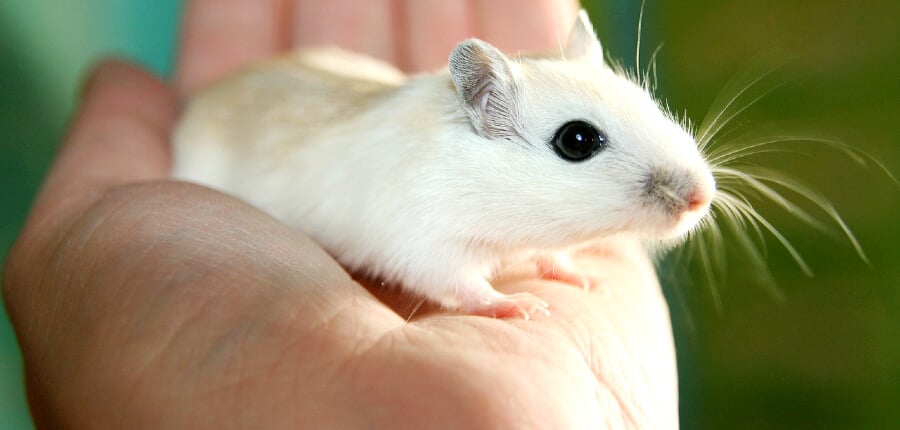- Huge news! Following urging from PETA entities worldwide, use of the forced swim test to model human depression could soon end in the U.K. Influential scientists working for a medicine-regulating agency have reviewed the evidence and sought input from experts. And in a new paper that cited PETA’s work with global pharmaceutical companies, they concluded that the forced swim test cannot predict the efficacy of potential new antidepressant drugs for humans.
- The U.K. government released its annual statistics on animal experiments, and while the total number of experiments is seemingly the lowest since 2004, the numbers don’t tell the whole story. However, it’s clear that the use of animals for skin allergy tests, neurodegenerative disease studies, antidepressant drugs, and COVID-19 research is soon to be history—and that’s something to celebrate.
- PETA U.K. made even more waves to prevent small animals from being used in the forced swim test. The group’s supporters participated in virtual open days at the University of Bath and the University of Bristol, asking why the schools’ science departments continue to conduct the test and tagging them in tweets calling for compassion.
- A national advocacy group for Black farmers has joined PETA’s campaign to stop fruit, vegetable, and grain research and promotion boards—which are overseen by the U.S. Department of Agriculture (USDA)—from gouging farmers to fund crude and cruel animal tests.
- The USDA has rejected the University of Washington’s attempt to erase recent citations for critical animal welfare violations, including for an incident that PETA uncovered in which a pigtail macaque went missing for as long as 48 hours without access to food or water. We will keep going full steam ahead, showing the public that their tax dollars are being squandered on suffering.





